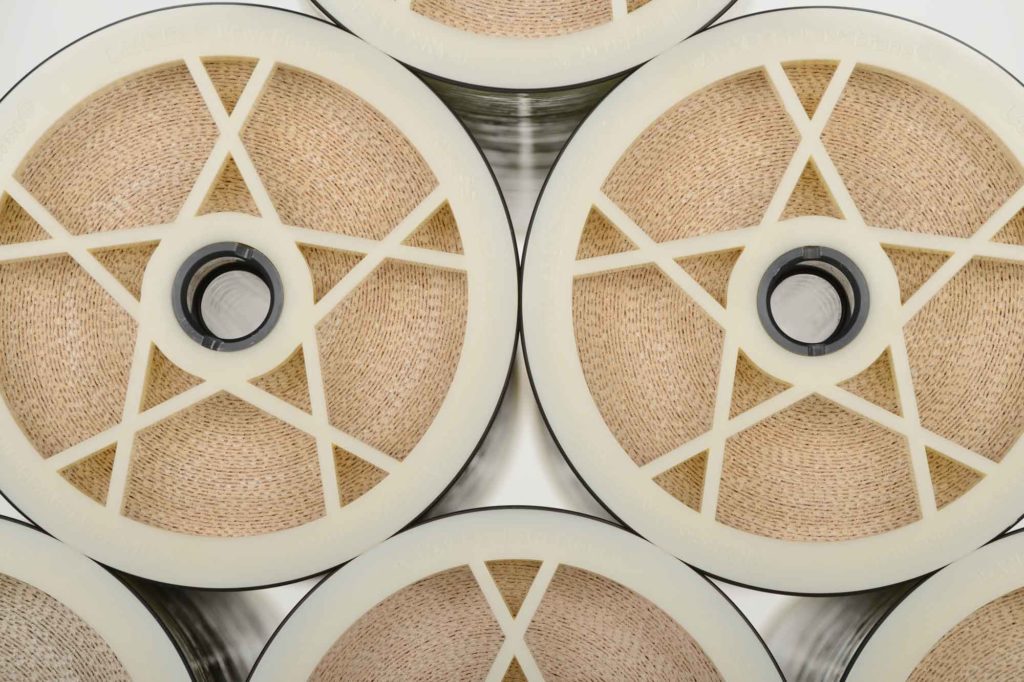The reverse osmosis filter elements of the chemicals company Lanxess are helping to supply clean drinking water in northern Ghana. The water-treatment plant of Mazareka Co. Ltd., which is based in Tamale/Kanshegu, is equipped with Lewabrane RO B400 HR membrane elements. It has a capacity of 40 cu.m. per hour and supplies water for approximately 6,00,000 persons. Application technology from the Liquid Purification Technologies (LPT) business unit at Lanxess helped with the design of the filter system used by the plant.
“We taught the employees of Mazareka how to use the Lewaplus design software, so that any necessary adjustments can be made to the equipment if there is a change in parameters,” says Dr Jens Lipnizki, Head of Technical Marketing Membranes, LPT.
The spiral-wound Lewabrane RO B400 HR module consists of a polyamide composite membrane and was developed for industrial water treatment and the purification of drinking water. The main feature of the Lewabrane HR (high rejection) membrane is its high retention of critical components such as nitrates and organic compounds. It delivers excellent permeate quality and satisfies NSF/ANSI Standard 61 for drinking water system components.
How did it start
Mazareka’s modern drinking water treatment plant is the first of its kind in the northern region of Ghana. Mazareka has set itself the goal of combining the best hygienic practices with modern reverse osmosis technology to produce high-quality water for safe consumption.
“We have a major competitive advantage over the few producers in the south of the country, who have to pay high transportation costs to bring their products north,” says Dieter Heinrich, an industrial foreman from Saarland, Germany.
Mr Heinrich and Moses Azare, a manager at the telecommunications company Millicom International Cellular (Tigo) in Ghana, founded Mazareka in 2013 in order to supply Tamale with water according to European quality standards. Together they worked out a business plan for the water project and, following a geological appraisal, invested the equivalent of EUR 5,000 to drill a well. In January 2013, the company erected a 300-sq.m. building that now houses a storage area, an office, and the filtering and filling system.
An investment in the future
In October 2013, Mazareka began producing sachets filled with water and soft drinks, the latter consisting of water with pineapple, cola, orange or grapefruit flavoring added. However, with the filter elements initially used in the system, the channels of the membrane elements quickly became clogged, and the elements blocked the flow of water. That problem shut down the plant.
“Since we switched to Lewabrane, our filter system has been running perfectly, and it needs to be cleaned much less often. The investment was worth it, because it has also increased our productivity,” says Mr Azare.
The company recently began distributing its products not just in sachets but in pet bottles as well. ‘Energised drinks’ — water with sugar, sweeteners, and lemon flavoring — are now available as well. At present, the company often has to work at night, because the grid is overloaded at peak times during the day and there are power failures.
The company has already planned to expand. It wants to supply the bordering countries of Burkina Faso and Togo. By the end of the year, it is also going to buy a generator, so that it can produce without relying on the public power grid.
Cookie Consent
We use cookies to personalize your experience. By continuing to visit this website you agree to our Terms & Conditions, Privacy Policy and Cookie Policy.





















